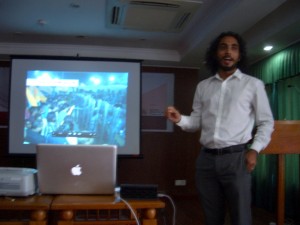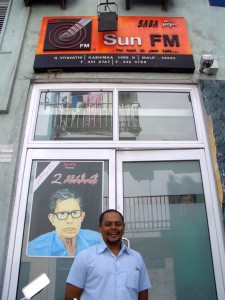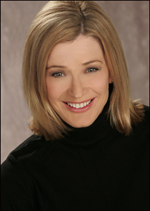Live, Local and Late Breaking
The past two years have been a proving ground for young Maldivian journalists, especially when covering the violent street protests over the February 2012 change in government. When a reporter from Raaje TV showed one of his live shots in our media workshop, it touched off a heated discussion. 
Maldivian TV news coverage is subject to a confusing maze of regulations and a code of practice. For example, a court has ruled that the Dhivehi word for “coup” is banned from the airwaves as incendiary speech. So whenever former President Nasheed voices his opinion that he was removed from office in a coup, the station airing the speech lands in hot water with the broadcasting commission because of a regulation saying that broadcasters are responsible for what goes out over the air.
Protesters shouting profanity create another problem for live coverage.The obvious solution would be a short delay to bleep out the offending words, or recording the event and editing out the obscenities.
In this environment, the Broadcasting Commission has had to adjudicate many complaints and it’s important that they do it in an open and transparent way. This is a teaching moment for Maldivian broadcasters to learn the best practices of live broadcasting, such as identifying information that is not confirmed and then working to get the confirmation. In this highly polarized society they also need to be careful to include all sides of the story. Without enough experienced editors to show them the way, they are learning one story – and one mistake — at a time.
At an afternoon session with the Sun media group, I met Ahmed Zahir with the Maldives Journalists Association, which has pushed for reforms to make it possible for journalists to do their jobs in a fair and independent way. It would be nice to see Maldivian journalists from print, broadcast and online come together to fight for the future of their profession.
Tweet





 Hi, I'm Terry Anzur. I've been a professional multimedia journalist for more than 30 years, anchoring and reporting everywhere from New York to Los Angeles to West Palm Beach. I've taught on-air skills to journalists of all levels, both through positions at the University of Southern California and Pepperdine University and through my own independent company.
Hi, I'm Terry Anzur. I've been a professional multimedia journalist for more than 30 years, anchoring and reporting everywhere from New York to Los Angeles to West Palm Beach. I've taught on-air skills to journalists of all levels, both through positions at the University of Southern California and Pepperdine University and through my own independent company.